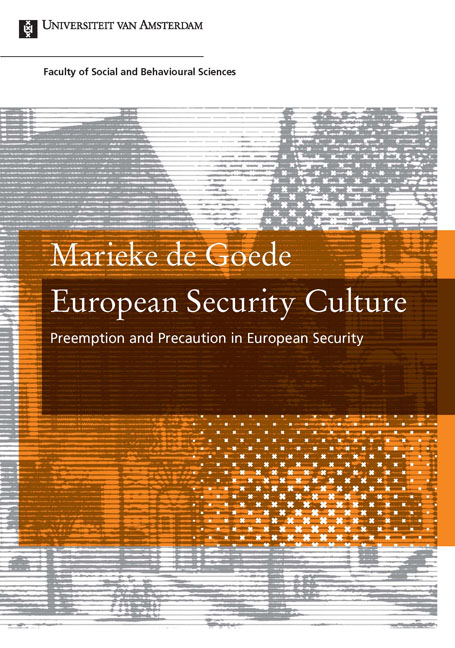European Security Culture: Preemption and Precaution in European Security
Published online by Cambridge University Press: 20 January 2021
Summary
What is the face of the European Union as a security actor today? Let's consider two very different examples, which, taken together, reveal what I take to be a central aspect of the emergent European security culture. In June 2010, the European Union and the United States concluded a new agreement on the exchange of financial data held by the Belgian-based wire transfer company SWIFT. Since October 2001, the CIA and US Treasury have accessed such wire transfer data in secret within the context of the fight against terrorism. A substantial transatlantic controversy erupted when the existence of this secret programme was revealed in 2006. After four years of negotiation and political contestation, the new agreement of 2010 enables the American security authorities to have continued access to European data. In addition, and very importantly, the agreement announces the future design of a similar programme by the EU itself. The purpose of such a security programme is to produce “targeted information” through the analysis of financial transaction data. Through sophisticated data-analysis and network visualisations, the objective is to identify and interrupt possible terrorist activity at an early stage. We know that over 1,500 investigative leads have been shared between the United States and Europe, leading to real security interventions in Spain and the Netherlands.
The European Terrorism Financing Tracking Programme is currently being developed by the Commission. This is not just a measure imposed from the outside; it accords closely with long-standing ambitions of Commission and Council, and it intersects in important ways with existing EU policies and databases. Once in place, the new programme will significantly strengthen the scope and force of the EU as a security actor.
Consider next, the nature of the EU NAVFOR operation against piracy off the Somali coast, also known as Mission Atalanta. The core mandate of the mission is to protect ships of the UN world food programme, and other shipping in the service of humanitarian aid. However, the mission is also empowered to deter and prevent acts of piracy before they take place, and to apprehend and disrupt suspected future pirates.
- Type
- Chapter
- Information
- European Security CulturePreemption and Precaution in European Security, pp. 5 - 20Publisher: Amsterdam University PressPrint publication year: 2011



